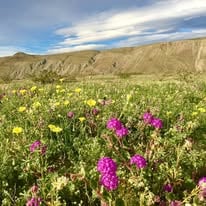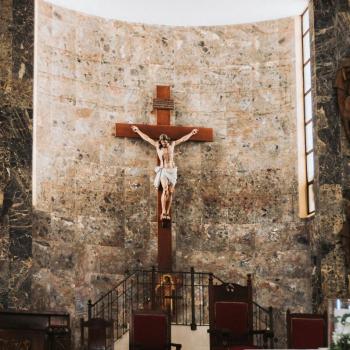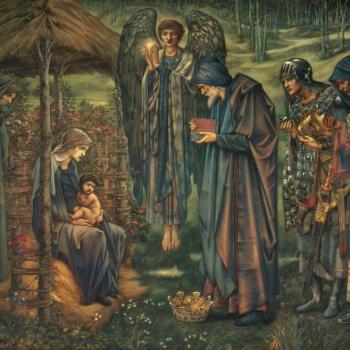Today, the entire world mourns the loss of the inspiring, gentle, and wise Pope Francis, who guided the world with love and truth. Pope Francis embraced the poor and suffering, even choosing to take public transportation alongside everyday citizens in Rome. He fostered global care and concern for the earth, immigrants, the marginalized, and the afflicted.
After Easter, before Earth Day
Pope Francis died the day after Easter, on April 21st, 2025; the day after he met with United States Vice President Mike Vance; and the day before Earth Day 2025.
Let’s honor the Pope by caring for creation this Earth Day. We can begin by exploring his first encyclical, Laudato Si’.
Laudato Si’, Praise Be to You
The first encyclical Pope Francis wrote, aside from completing one initiated by Pope Benedict XVI, was Laudato Si’, translated from Latin as Praise Be to You. In this encyclical, Pope Francis highlighted the deep connection between the human person and “beautiful mother” earth. Simply put, he writes: “Everything is connected.” He reminds us that “our very bodies are made up of her elements, we breathe her air and we receive life and refreshment from her waters” (para. 2).
Intrinsically connected to the earth
And Pope Francis is right. We often forget that we are deeply, intrinsically connected to the earth. My children recently wondered at the mystery of oxygen and carbon dioxide—We breathe in oxygen, and breathe out carbon dioxide. Plants do the opposite. My children were silent for moments after this discussion, as if pondering in unspoken awe this unfathomable mystery—one which many of the Saints contemplated throughout their earthly lives.
One of these saints, Saint Francis, for example, praised “Brother Sun” and “Sister Moon,” while also embracing those suffering from leprosy, a highly contagious disease at the time. As Pope Francis describes in the encyclical, Saint Francis highlighted the “inseparable…bond…between concern for nature, justice for the poor, commitment to society, and interior peace.”
The tragic famine and fighting in Sudan is a solemn, but important reminder of that relationship between our care for creation, the poor, society, and inner peace.
“To know…their maker”
Perhaps one of my favorite notes in the encyclical is the reference to Wisdom 13:5: “Through the greatness and the beauty of creatures one comes to know by analogy their maker.” As a professor of Psychology, I can’t help but turn to the “greatness and the beauty” of the human person. In class, students and I discuss how the human person flourishes when he or she gives, loves, praises, sees beauty, prays, forgives, and finds meaning in suffering. All of this can be taken to inform our understanding of God—Creator. He created us to flourish in and through these good and beautiful actions.
Unite in the care of creation
In Laudato Si’, translated from Latin as Praise Be to You, Pope Francis urges us to unite in the “the care of creation.”
The field of psychology provides evidence that this is possible, and characterizes the path to this unity. Natural beauty leads to self-transcendent emotions and thus, to greater unity. Self-transcendent emotions draw us out of ourselves and orient us toward others—or toward a sense of greater “otherness.”
In one study by Anderson et al. (2018), military veterans and youth from underprivileged communities went white-water rafting, and reported experiencing awe during the experience. If you’ve ever felt small compared the vastness or greatness surrounding you, you’ve probably experienced awe. Maybe you were amazed at a talented piano player, moved by the sight of snow-capped mountains, or struck by the kindness of a stranger. Anyway, in Anderson and colleagues’ study, not only did participants experience awe while in nature, but greater awe predicted higher levels of well-being and fewer stress-related symptoms a week later. This evidence reflects the healing power of nature, as well as the tendency for nature to reveal greatness.
Appreciate beauty
Other studies have explored trait appreciation of beauty—the degree to which someone tends to notice, engage with, and appreciate beauty. In one study, the degree to which one appreciates beauty strongly predicted proenvironmental behavior (Diessner & Niemiec, 2023), thereby echoing Pope Francis’ words: “see and appreciate beauty.”

Photo by Millicent Price
Honor Pope Francis, Care for Creation
This Earth Day, let’s honor Pope Francis by cherishing creation, protecting it, and caring for it.
Let’s offer our gifts and talents in the service of creation, towards improving sustainability and life for all people.
Let’s unite in prayer for the hearts and minds of world leaders—that their actions and words align with Pope Francis’ intention for “care for creation”, “joined to a sincere love for our fellow human beings and an unwavering commitment to resolving the problems of society.”
Except from closing prayer in Laudate Si’:
God of love, show us our place in this world
as channels of your love
for all the creatures of this earth,
for not one of them is forgotten in your sight.
Enlighten those who possess power and money
that they may avoid the sin of indifference,
that they may love the common good, advance the weak,
and care for this world in which we live.
The poor and the earth are crying out.
O Lord, seize us with your power and light,
help us to protect all life,
to prepare for a better future,
for the coming of your Kingdom
of justice, peace, love and beauty.
Praise be to you!
Amen.

















